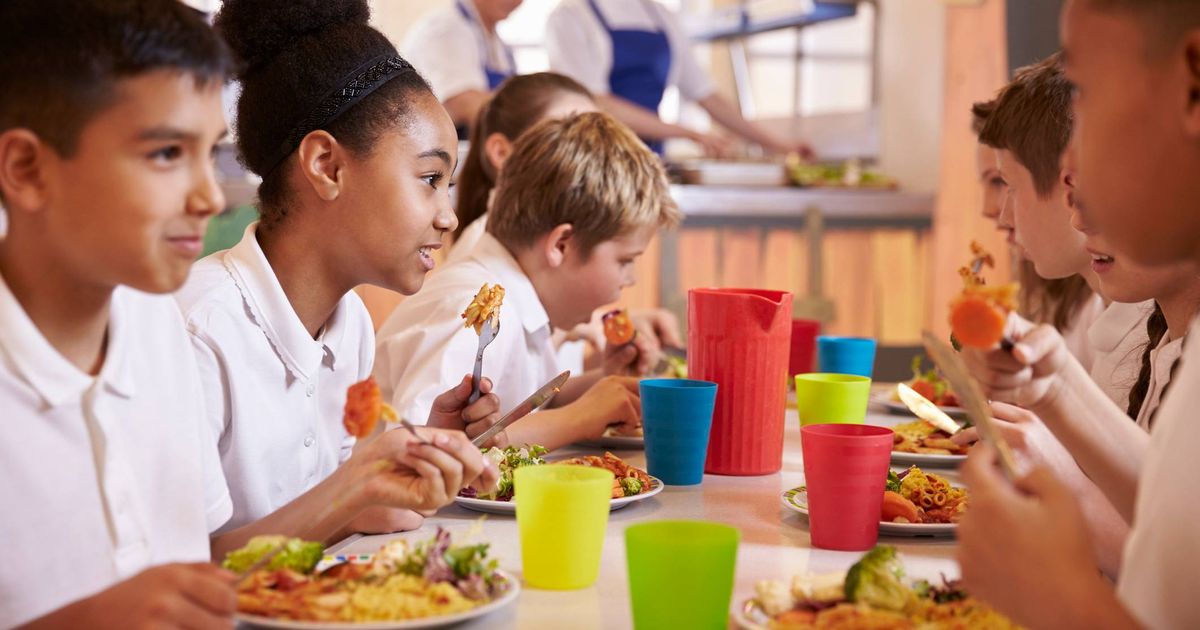The free school meals scheme is set for a significant change as the eligibility criteria is expanded to help more than 500,000 children – here’s exactly who is able to get the benefit, and the rules you need to know
The free school meals scheme is set for a major shake-up as the eligibility criteria is broadened to assist more than half a million kids. This shift will particularly affect families on Universal Credit in England.
Parents could see savings of up to £500 per year due to this expansion as all families on Universal Credit will be eligible for free school meals. It’s been confirmed that this change will take effect from the start of the next academic year in September 2026.
Currently, all children in England are entitled to free school meals until they complete Year 2. However, after this point, they only qualify if their family’s income is less than £7,400 a year after benefits.
Earlier this summer, Prime Minister Sir Keir Starmer announced that from September 2026, all children in households claiming Universal Credit will be entitled to a free lunch. The government aims to provide more free school meals to disadvantaged pupils in maintained schools, academies, and free schools across the country, by expanding the eligibility rules.
READ MORE: Major warning over free school meal expansion as kids at risk of missing outREAD MORE: Poorer children ‘more likely to have SEND but less likely to get support’
This change means about 500,000 additional children will now qualify for free meals. Children who currently benefit from free school meals will continue to be eligible until the end of the 2025/2026 academic year.
Applications must be submitted on the student’s behalf, with their eligibility verified by either their school or local council. Additional guidance will be provided before the policy changes take effect next September.
Who is eligible for free school meals?
At present, pupils and their families receiving the following benefits – whilst earning less than £7,400 outside of these payments – are entitled to free meals:.
- Universal Credit
- Income Support
- Income-based Jobseeker’s Allowance
- Income-related Employment and Support Allowance
- Support under Part VI of the Immigration and Asylum Act 1999
- The guarantee element of Pension Credit
- Child Tax Credit (provided you’re not also entitled to Working Tax Credit and have an annual gross income of no more than £16,190)
- Working Tax Credit run-on – paid for four weeks after you stop qualifying for Working Tax Credit
Families on Universal Credit with monthly net earnings below £616.67 in their latest Universal Credit assessment period automatically qualify for free school meals, with no further verification needed.
Those whose earnings exceed this threshold during their most recent Universal Credit assessment period will have their net income evaluated across their two latest assessment periods, ensuring it doesn’t surpass £1,233.34. This qualifies them for free school meals without additional verification requirements.
Special provisions also exist allowing local councils to support children and young people where delivering assistance within a school environment would be deemed “inappropriate”.
Such support is usually incorporated into the child’s education, health and care plan. For children with disabilities, such as those with autism who may have sensory processing difficulties leading to a restricted diet, reasonable adjustments can be made.
Local authorities can provide various forms of support, including issuing food vouchers to parents, enabling them to prepare a packed lunch that caters to their child’s specific needs.
By
Source link



Leave a Reply